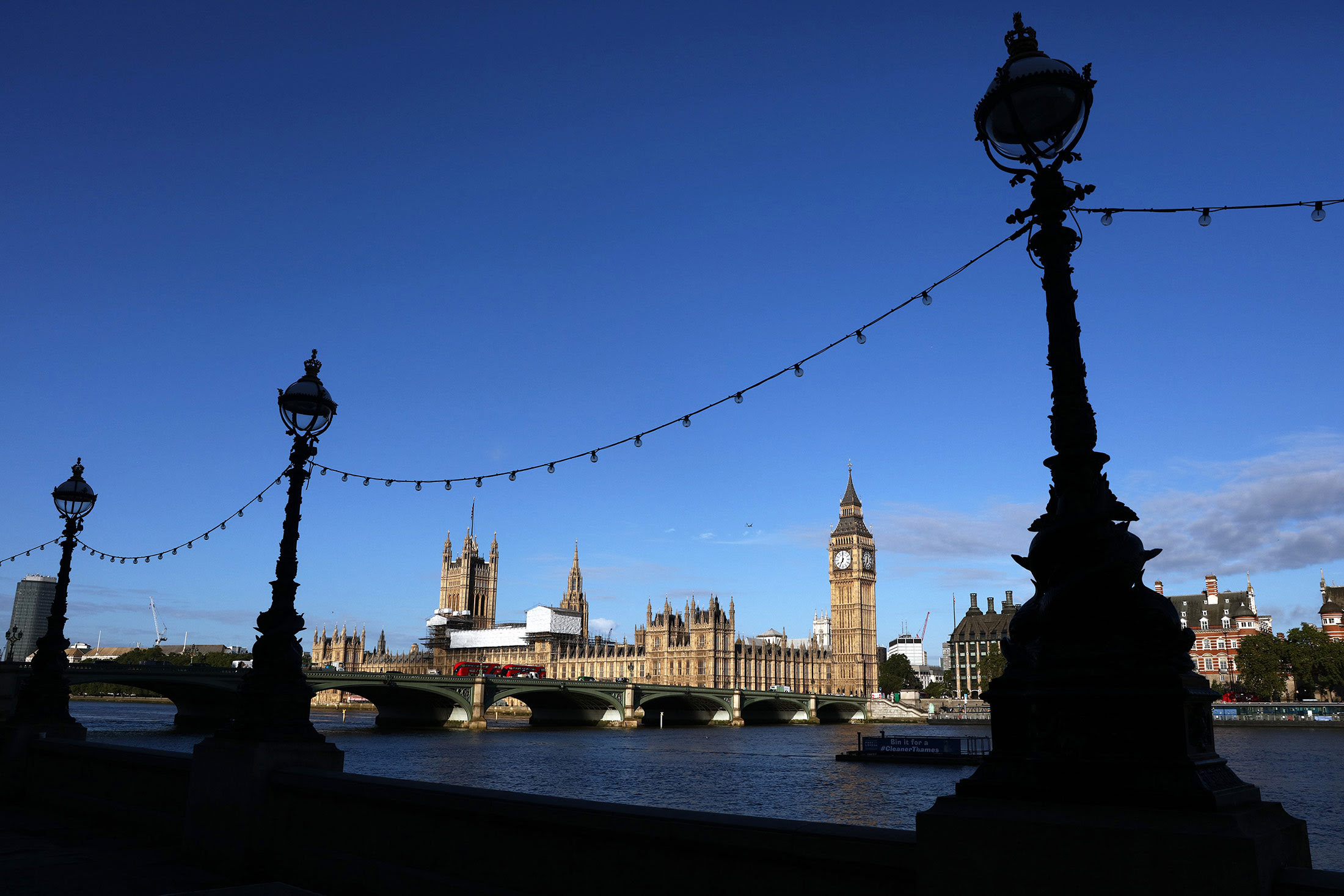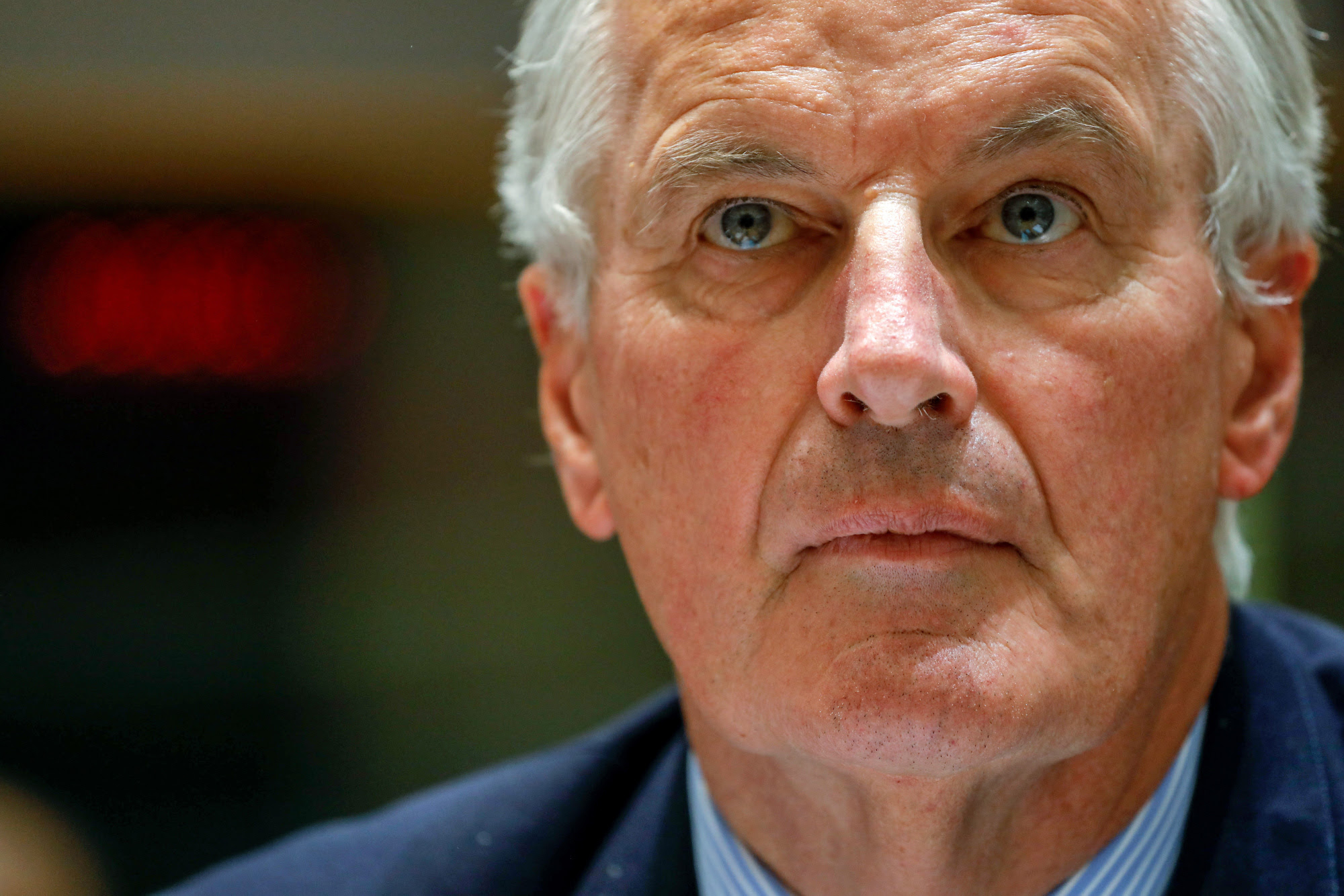Under pressure from all sides
If Theresa May ever thought getting out of the European Union required only negotiating with Brussels she received a sharp wake-up call this week.
Underscoring how many constituencies she must appease to deliver Brexit, the U.K. prime minister finds herself under pressure not just from the EU but also from British politicians of the left and the right, as well as business leaders.
Chief EU negotiator Michel Barnier on Thursday highlighted the depths of his frustration and of the division between the two sides. He accused the U.K. of reneging on promises over a divorce payment and said he was worried by May’s approach to the Irish border.
In a reworking of the refrain that the U.K. can’t “have its cake and eat it,” Barnier rejected the possibility of combining “the benefits of the Norwegian model with the weak constraints of the Canadian model.”
Minutes from a European Commission meeting in July highlighted the tensions. They quoted Commission President Jean-Claude Juncker as saying he was concerned about the “stability and accountability” of Brexit Secretary David Davis.
The upshot: any chance of an October deal on the divorce terms is fading fast. European Parliament President Antonio Tajani said as much, declaring it would be “very difficult” to start trade talks next month with so much still left to be resolved.
— by Simon Kennedy

Meanwhile, May is under fire in London as well, again demonstrating the problem of squandering a parliamentary majority.
A group of pro-Brexit Conservative lawmakers is circulating a letter declaring Britain must leave the single market at the same time it departs the EU, and calling for any transitional deal to stipulate a clear timetable for leaving the market and the customs union. May’s office said the demands in the letter go beyond government policy.
As for the left, the opposition Labour Party is pushing the government to tweak legislation aimed at bringing EU law on to the U.K. statute book, from where it can be edited. Labour fears that the bill gives the government sweeping executive powers. Davis said he was “ready to listen” to critics who could offer improvements, but former Chancellor Ken Clarke said he might still rebel and other Tories aren’t happy. Labour is also fleshing out its vision for Brexit, suggesting Britain could stay in the customs union for years.
Businesses are grumbling, too, as they prepare for talks with U.K. officials next week. A leaked document outlined a tough crackdown on immigrants from the EU, particularly with those lacking skills. The concern of executives is that such a plan, if implemented, would hurt both the economy and the chances of a transition from the EU.
“I’d be extremely surprised if that’s what we end up with because it would be problematic for us and many others, including the National Health Service,” Seb James, the chief executive officer of Dixons Carphone, the country’s largest electronics retailer, said in an interview.
To coin a phrase from Davis, back on Tuesday: “Nobody has ever promised this will be simple or easy.”

Brexit Latest
Transition Details | Davis gave the most detailed description of what that period would look like—if the EU approved it—telling lawmakers in London that he envisaged an arrangement “as close as possible to the current circumstance.” But he ruled out mimicking Norway or Switzerland.
Seeking clarity | The British finance industry urged the government to provide “early clarity” on whether contracts involving financial transactions will remain valid after Brexit. In a report issued Thursday, the Association for Financial Markets in Europe said it’s important for the U.K. government to detail what a transition from the EU will look like.
Banks Eye Exit | Goldman Sachs could increase its Frankfurt staffing as much as fourfold as the bank deals with the fallout of Brexit, a senior executive said. Meanwhile, Bob Diamond, the onetime architect of Barclay’s investment bank, said London will be hurt more than people expect from Brexit, with lawyers likely to join bankers in moving away.
Economic Outlook | The weaker pound is failing to boost U.K. economic growth, according to the British Chambers of Commerce. The business group downgraded its medium-term outlook for the economy, citing a weaker-than-expected contribution from trade and subdued consumer spending. Inflation will outpace wage growth until 2019, the BCC forecast, continuing the squeeze on shoppers’ pockets. Still, another report showed starting salaries climbed by the most since October 2015 last month, albeit boosted by a shortage of available workers.

On the Markets | A new study by Goldman Sachs economists found that U.K. asset prices have been more sensitive to Brexit-related political announcements than to macro-economic data surprises or monetary policy shocks since the Brexit vote.



Comentarios
Publicar un comentario